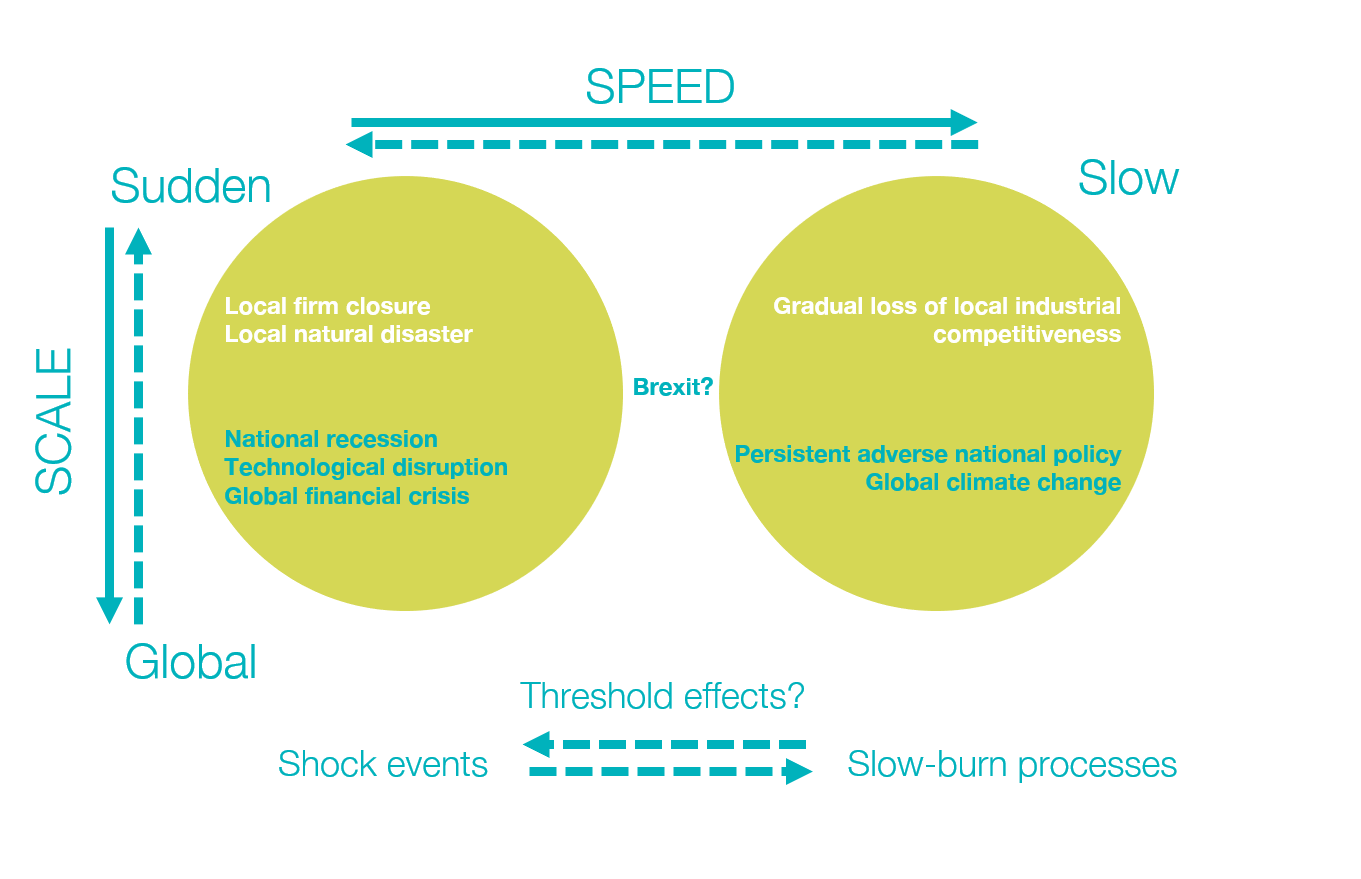The aim of this briefing is to examine what can be done by local economic policymakers in response to economic shocks. It defines economic shocks, identifies rationales for intervention and short-, medium- and long-term local policy responses, explains the ‘task force’ model, suggests things to consider for local economic policymakers, and references supporting evidence.
Amidst the geographically uneven impacts of the COVID-19 pandemic and recovery, local policymakers’ responses to various and rapidly-changing localised economic shocks have become more important and timely.
The evidence base to guide policy is patchy. Many of the policy responses have been improvised to tackle a diversity of shocks and sudden disruptions. Few have been robustly evaluated and it is unknown what would have happened without such measures. However, the potentially damaging and lasting impacts of economic shocks locally have necessitated intervention by local partners. This briefing therefore draws upon the available sources to provide a guide to such action.
What is an economic shock?
Economic shocks are substantial disruptions to existing economic activities. They are of different types and have multiple and inter-related causes relating to economic and structural changes. Shocks can originate within local economies or from their external relations.
What is an economic shock?

In the short run, we hope this briefing is helpful in informing the response to Covid-19. In the longer run, we hope it might encourage more piloting and testing of policy approaches that aim to help local areas respond to major shocks, whatever their cause.





